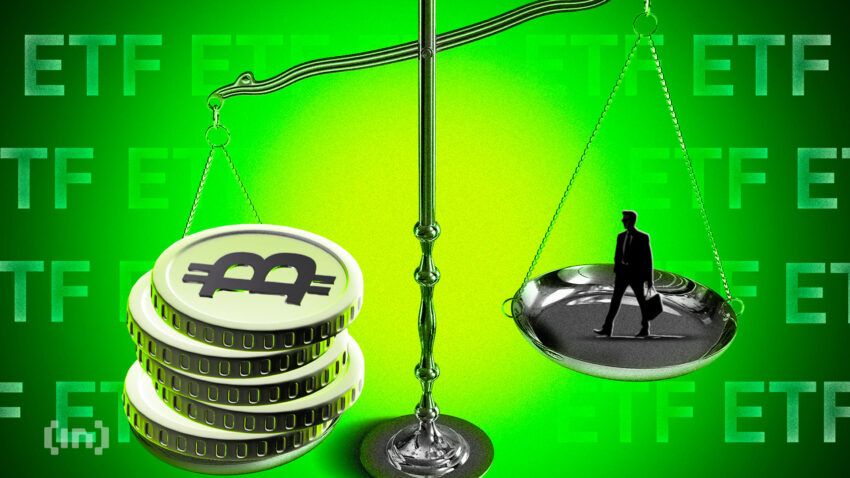South Korea’s Financial Services Commission (FSC) is deliberating revising its stance on spot Bitcoin ETFs (exchange-traded funds), handing over the consideration to a crypto advisory committee.
If approved, the financial instrument could position South Korea alongside a growing list of countries dealing with these investment products. It would also significantly expand the country’s digital asset investment market, as is happening in the US.
South Korea Deliberates Spot Bitcoin ETF Approvals
Local media reported that South Korea’s FSC is considering allowing spot Bitcoin ETFs and has established a virtual asset committee. The revelation came during the National Assembly State Affairs Committee audit session on Thursday.
The advisory committee will policies around evaluating digital assets and consult extensively before a possible approval. A positive decision from this virtual asset committee would see South Korea’s strict stance on investment products such as spot Bitcoin ETFs revised.
In June, the Korea Institute of Finance (KIF) expressed concerns months after the US SEC approved spot Bitcoin ETFs in the country. Specifically, the KIF highlighted significant risks associated with introducing such financial products into South Korea’s economy. Among them, it cited the potential for “increased inefficiency in resource allocation.”
Read more: How To Trade a Bitcoin ETF: A Step-by-Step Approach.
It also mentioned greater financial instability associated with connecting the country’s local market to the volatile crypto sector through the spot Bitcoin ETFs. The KIF warned that such financial instruments would pull investors’ focus away from traditional industries, diverting capital and potentially slowing down South Korea’s growth and innovation.
“Allowing [such] products can lead to side effects such as increased inefficiency in resource allocation, increased exposure to crypto-related risks in the financial market, and weakened financial stability,” a paragraph in the report read.
Nevertheless, the US market continues to record growing institutional interest driven by spot crypto ETFs as investors seek exposure to Bitcoin. As the allure extends to other jurisdictions like Australia and Hong Kong, among others, South Korea now finds itself at a crossroads, not wanting to lag.
Spot BTC ETFs Could Mitigate Kimchi Premium, Experts Say
CryptoQuant CEO Ki Young Ju is optimistic about the development. He says an approval would help prevent the Kimchi premium, a price gap between South Korean and overseas exchanges.
“This is bullish and will mitigate the Kimchi premium as arbitrage funds and market makers enter the Korean market,” Young Ju noted.
Other community members have also commented on the potential impact. One user on X (formerly Twitter) observes that it could open the door for institutional players, strengthening liquidity and increasing the crypto market’s potential in Korea.
Mickey Hardy, the founder of Web3 marketing and consulting studio Arcadia, said this development shows how Asian markets are leaning towards crypto, suggesting massive adoption. Rightfully so, given South Korea is also considering allowing the creation of institutional crypto accounts.
Read more: Crypto Regulation: What Are the Benefits and Drawbacks?
According to the same report, the FSC established the Virtual Asset Protection Foundation in September to address similar concerns. This organization will oversee the recovery of customers’ assets from bankrupt crypto exchanges, providing relief to those affected by such exposures. Similarly, Thailand is making strides into the crypto market.
“Thailand’s Securities and Exchange Commission (SEC) has proposed new rules to allow mutual funds and private equity funds to invest in digital assets. It also wants to allow brokerages and asset managers to offer services to large investors interested in investing in cryptocurrency-related products such as ETFs,” WuBlockchain reported citing Thailand’s SEC.
Meanwhile, even as South Korea deliberates a spot Bitcoin ETF, the region’s largest exchange, Upbit, is the subject of a new investigation. As BeInCrypto reported, the country’s lawmakers are probing the monopoly structure of the virtual asset market built around the trading platform.
Disclaimer
In adherence to the Trust Project guidelines, BeInCrypto is committed to unbiased, transparent reporting. This news article aims to provide accurate, timely information. However, readers are advised to verify facts independently and consult with a professional before making any decisions based on this content. Please note that our Terms and Conditions, Privacy Policy, and Disclaimers have been updated.


